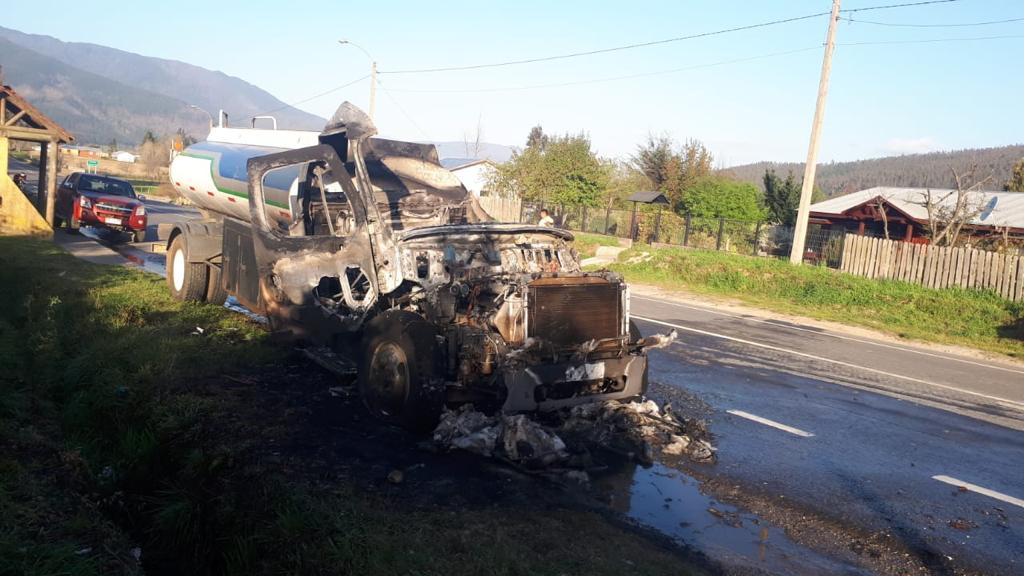Comparative figures on violence against contractor companies during the last two governments show the consolidation of "sabotage" in the forestry industry across the macro-region.
"This information is the basis of our ongoing complaint to authorities who have turned a deaf ear to so much destruction and violence. To date, 47 of the 107 municipalities that make up the regions from Biobío to Los Lagos have been subjected to fire and terrorist bullets, where workers are shot, beaten, and kidnapped. The rule of law does not exist, and the institutions that should protect citizens are not functioning," said René Muñoz Klock, manager of the Association of Forestry Contractors, with these words presenting the number of attacks, destroyed equipment, and municipalities affected by violence from 2014 to the present. The data reveals a systematic increase during the years of President Sebastián Piñera's government.
Thus, during Michelle Bachelet's term, there were 77 attacks, compared to 212 under Sebastián Piñera; 235 pieces of equipment destroyed versus 763, respectively. Regarding the territory involved in these attacks, an average of 9 municipalities were affected during Bachelet's period, while under the current government, this number has risen to 23 municipalities in the southern macro-region.
When asked about the reasons for this nearly 300% increase in the three indicated categories, the union leader stated that it is due to criminals being allowed to act freely. "They have an open field, and investigations are poor. When someone is arrested, the evidence lacks weight to formalize charges and proceed to trial, creating a vicious cycle where they are not even formally charged and continue committing crimes. In addition to the lack of effective investigations and preventive actions, there is centralism—if these attacks happened in Santiago, they would likely have been resolved or addressed. But because we are in the south, we remain trapped in this irrational violence." He added, "The most dramatic aspect of this tragedy in the south is that burning, shooting, and destroying have become normalized as ways to resolve problems and difficulties. It is common and accepted. We cannot internalize this; as southern residents, we cannot accept it. Someone must react and stop it, and the authorities of this government are the first responsible."
Regarding the lower figures during Michelle Bachelet's government, Muñoz noted, "I don’t think any real work was ever done in either government. The difference is that violent groups were smaller and just beginning to establish themselves during Bachelet. If we look at the attack figures during her term, they were quite erratic, whereas under Piñera, they have risen systematically year after year. But what stands out is the equipment destroyed during this government, showing a sustained annual increase. Before, there were no declarations of war; under Bachelet, it was trial and error, while under Piñera, there is now a consolidation of terrorist rhetoric."
These comparative figures come after complex and violent days, including a married couple in the municipality of Carahue, in the La Araucanía region, suffering severe burns due to an arson attack on their home while they slept, the burning of cabins at Lake Lanalhue, an arson attack on a fuel truck in Cañete, Arauco province, and the early-morning burning of three trucks today in Contulmo.







Comments (0)
No comments yet. Be the first to comment!
Leave a comment